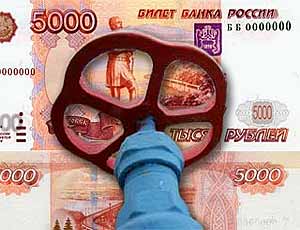29.04.2008
April 25, 2008 (the date of publication in Russian)
Sergey Pravosudov
GAS TRADE RISING, THE DOLLAR WANING
Creation of "gas OPEC" will help the ruble to become a global currency
 It is becoming quite obvious that the longtime tradition of keeping money in US currency has run its course. On this background, we witness a price hike for all the major physical commodities like oil, gas, metals, and food. In the nearest time, major nations are likely to boost construction of facilities for storing the mentioned resources in order to shield themselves from the soaring prices. In addition, creation of reserves would protect currencies of states possessing vast amounts of vital energy, especially hydrocarbon resources. Eventually, the US dollar is going to be replaced with a basket of currencies in which the Russian ruble is going to play a significant role. Not accidentally, Gazprom has announced plans of gas trade for rubles, perceived by a number of Western nations not quite enthusiastically.
It is becoming quite obvious that the longtime tradition of keeping money in US currency has run its course. On this background, we witness a price hike for all the major physical commodities like oil, gas, metals, and food. In the nearest time, major nations are likely to boost construction of facilities for storing the mentioned resources in order to shield themselves from the soaring prices. In addition, creation of reserves would protect currencies of states possessing vast amounts of vital energy, especially hydrocarbon resources. Eventually, the US dollar is going to be replaced with a basket of currencies in which the Russian ruble is going to play a significant role. Not accidentally, Gazprom has announced plans of gas trade for rubles, perceived by a number of Western nations not quite enthusiastically.
In their turn, top US and EU officials argue that energy resources are "global commons" and therefore, nations possessing major amounts of them are obliged to provide free access of transnational corporations to their deposits. In other words, oil and gas assets are supposed to benefit not the interests of nations but corporate superprofits. Quite naturally, Russia does not accept this blatantly hypocritical argument. From the Russian standpoint, not corporations but states should decide how to use domestic energy resources.
One more issue of international debate is gas pricing. Today, most of the world's "blue fuel" is traded according to long-term contracts, prices being pegged to quotations of oil products at major stock markets. However, gas consumption is steadily growing – from 2.25trln cub. m in 1996 to 2.85trln cub. m in 2006. The US Energy Information Department anticipates an increase of this amount to 4.6trln by 2030, the surplus comprising 75%. In Europe, gas consumption is expected to increase from 509bln to 736bln cub. m, its share in the European energy balance increasing from 23.8 to 30.9%, while in China, gas consumption is going to rise from 56bln to 192bln cub. m. The surplus of oil consumption is expected to be not so huge: it is expected to rise from the present 86bln to 116bln barrels per day internationally.
The prevalence of gas in global consumption suggests the necessity to introduce and international pricing formula for this energy resource. The presently introduced practice of short-term (spot) contracts for gas, the increase of gas sales within the Commonwealth of Independent States, on the background of the inability of the waning US dollar to serve as a global reserve currency, makes the idea of a "gas OPEC" more and more popular. The treaty organization of gas producers is likely to emerge on the basis of the existing Forum of Gas Exporting Nations, presently unifying Algeria, Bolivia, Brunei, Egypt, Equatorial Guinea, Indonesia, Iran, Libya, Malaysia, Nigeria, Oman, Qatar, Russia, Trinidad, UAE, and Venezuela. This organization, emerging in 2001, has got an exceptionally consultative authority today.
In future, these countries will be able to more vigorously coordinate their policy in the spheres of extraction and export of "blue fuel", intending to prevent a bear game from consumers. In case US and EU companies wish to participate in extraction projects, they are supposed to provide shares of their generating and distributing sectors in exchange.
Partnership between fuel exporters is likely to calm down some militant NATO officials who now openly demand imposing military control over extraction and transportation of energy resources. Obviously, Russia is going to play a crucial role in the new treaty organization, both for economic and political reasons. Russia is the not only the largest possessor but also the largest producer of natural gas. At the same time, it does not make sense for Russia to join OPEC, as the country is not the champion in oil reserves and is unlikely to play a leading role in this alliance in the perspective.
Definitely, the idea of a "gas OPEC" encounters negative reaction from the United States and the European Union. However, our Western partners have to realize that foundation of the alliance of gas producing nations will increase reliability of gas deliveries, which may be disrupted only in case NATO forces, in some effort of "establishing order" in a "rogue" state, militarily attack one of the "gas OPEC" member nations.
Sergey Pravosudov is the Director of National Energy Institute, Moscow
Number of shows: 1194
 ENG
ENG 

 ENG
ENG 
